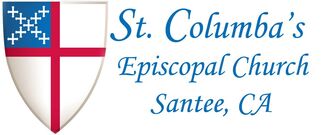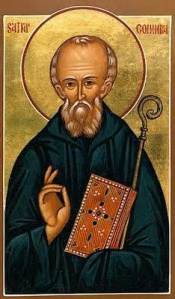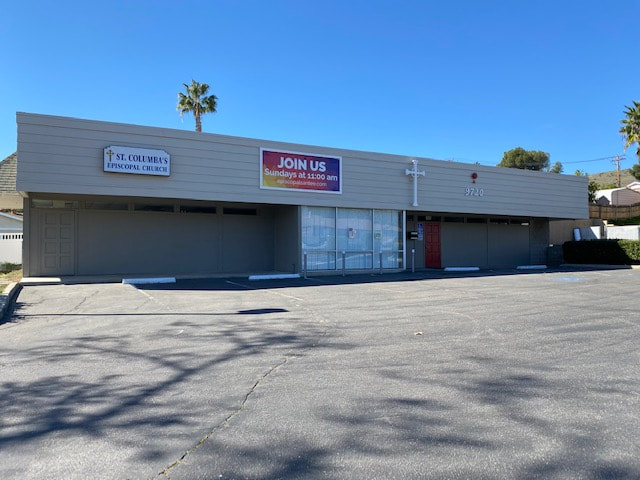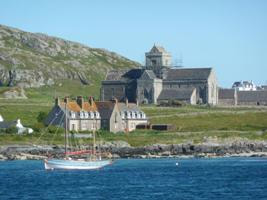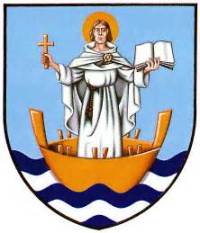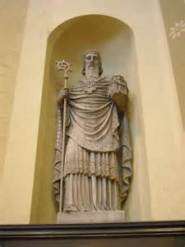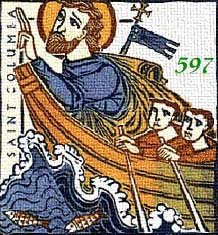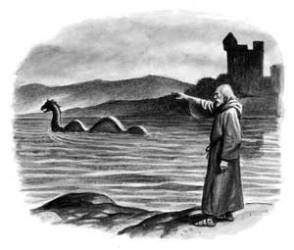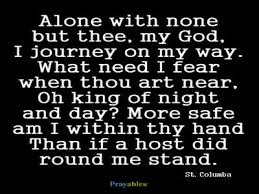About Saint Columba
|
Saint Columba, the Abbot of Iona, was born December 7, 521, at Gartan, Ireland, and was baptized Colum. [Another source says Crimthann]. He came from a noble family, the Clan O'Donnell, and was the son of a tribal chieftain named Fedhlimdh. On his father side he was the great-great-grandson of Niall of the Nine Hostages, a fourth century Irish king. Legend claims that, as a boy, Columba was found praying so often that he was nicknamed Colm Cille [Dove of the Church]. Consistent with the customs of the sixth century, he was fostered to Cruithnechan, who baptized him into the church and saw to his education. In his twenties, Columba became strongly influenced by his teacher Finian of Colonard, and chose to study for the priesthood. He was ordained at twenty-five. When given a piece of land by a Prince cousin, Columba founded a monastery, but defied the tradition of building the church facing east because he loved nature and wanted to save as many of the oak trees as possible. For ten years, Colum travel around northern Ireland and, in that time, founded 30 missions. HOW COLUMBA ENDED UP IN SCOTLAND? Columba had a forceful personality and often aroused antagonism. In 563 [561?], he was blamed for an argument that sparked the Battle of Cúl Dreimhne in which 3,000 men were killed. The high king exiled him from Ireland. With twelve companions, Columba left Ireland and settled on the island of Iona off the shore of Scotland. Columba and his friends often preached on the mainland of Scotland, and soon they had a community of 150. Repentant, Saint Columba devoted himself to convert as many Picts as those killed in the battle of Cúl Dreimhne. Columba was forty-four [42?] when he left Ireland. He and his friends crossed the sea in a currach (canoe) of wickerwork covered with hides and arrived on the island of Iona on the eve of Pentecost, May 12, 563. From Iona, Columba embarked on his life's work of converting the northern Picts to Christianity. Needless to say, he was opposed by the Druids. In 563, he founded a monastery at Iona which eventually became one of the most important centers of learning in Europe. Along with Saint Comgall and Saint Canice, Saint Columba went to visit King Brude near Inverness. The king refused admittance, and the gates were closed and locked. When the missionaries made the sign of the cross, the bolts flew back, and the doors opened. They entered into the presence of the king, who was awe-struck by the miracle. He listened to the men, was converted and baptized. People followed his example. St. Columba was off and running. The Saint lived an austere but colorful and productive life. He wrote 300 books by hand, of which two have been preserved to the present time. He died on Iona [after prophesying his own death] on June 9, 597. ST. COLUMBA, A SAINT OF MIRACLES AND PROPHESIES Saint Adamnan's biography of Saint Columba is considered the most complete bio and was written about a century after Columba's death. The document describes some of the saint's prophetic and miraculous powers. Personally, I found that many of his prophecies were logical conclusions resulting from being well informed and politically astute...but not all.
Saint Columba Raises the Dead
|
June 9 is celebrated as
Saint Columba's Feast Day Patron of:
Derry, floods, bookbinders, poets, Ireland, Scotland 521 - 597 AD
O Lord, grant us that love which can never die, which will enkindle our lamps but not extinguish them, so that they may shine in us and bring light to others. Most dear Savior, enkindle our lamps that they may shine forever in your temple. May we receive unquenchable light from you so that our darkness will be illuminated and the darkness of the world will be made less. Amen.
-- Saint Columba |
